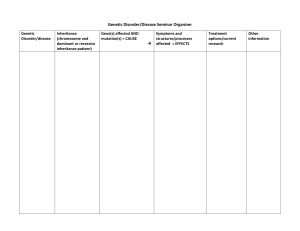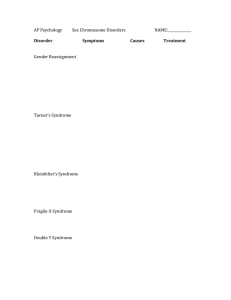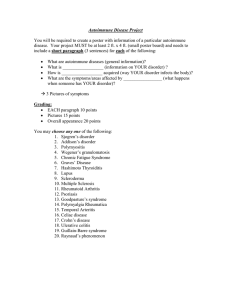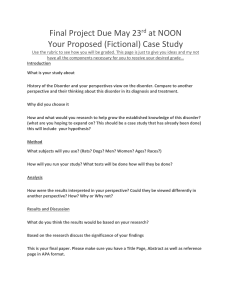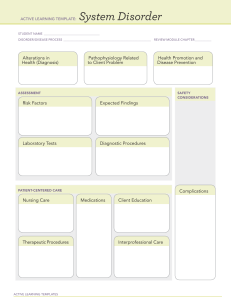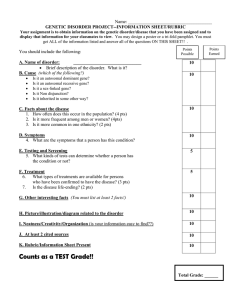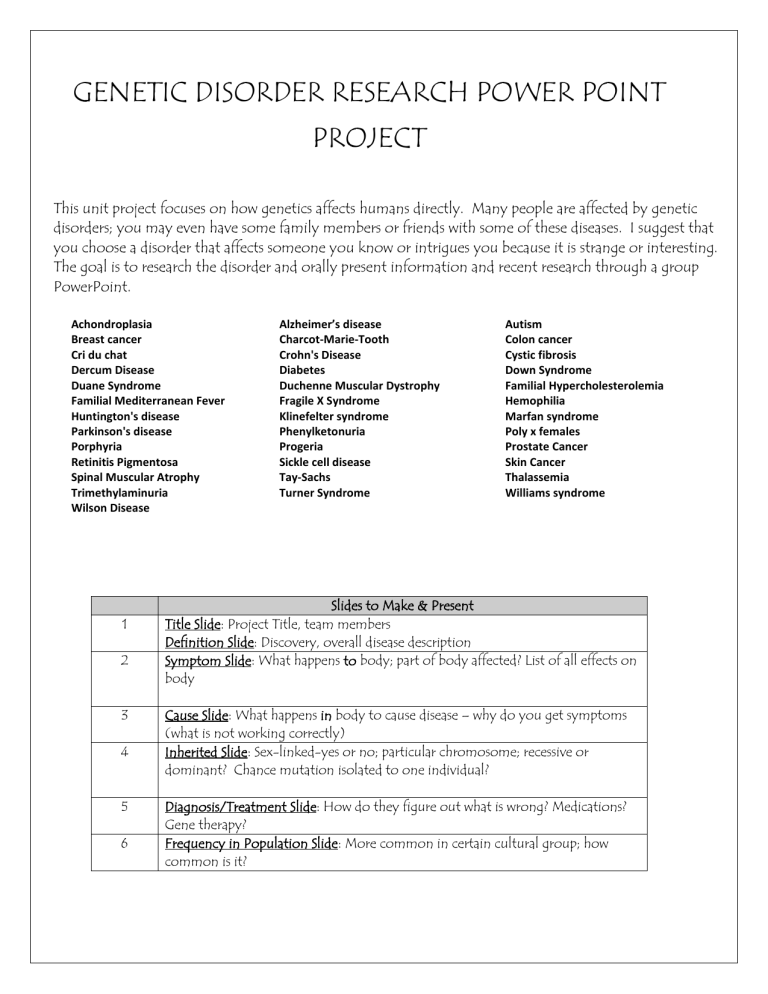
GENETIC DISORDER RESEARCH POWER POINT PROJECT This unit project focuses on how genetics affects humans directly. Many people are affected by genetic disorders; you may even have some family members or friends with some of these diseases. I suggest that you choose a disorder that affects someone you know or intrigues you because it is strange or interesting. The goal is to research the disorder and orally present information and recent research through a group PowerPoint. Achondroplasia Breast cancer Cri du chat Dercum Disease Duane Syndrome Familial Mediterranean Fever Huntington's disease Parkinson's disease Porphyria Retinitis Pigmentosa Spinal Muscular Atrophy Trimethylaminuria Wilson Disease 1 2 3 4 5 6 Alzheimer’s disease Charcot-Marie-Tooth Crohn's Disease Diabetes Duchenne Muscular Dystrophy Fragile X Syndrome Klinefelter syndrome Phenylketonuria Progeria Sickle cell disease Tay-Sachs Turner Syndrome Autism Colon cancer Cystic fibrosis Down Syndrome Familial Hypercholesterolemia Hemophilia Marfan syndrome Poly x females Prostate Cancer Skin Cancer Thalassemia Williams syndrome Slides to Make & Present Title Slide: Project Title, team members Definition Slide: Discovery, overall disease description Symptom Slide: What happens to body; part of body affected? List of all effects on body Cause Slide: What happens in body to cause disease – why do you get symptoms (what is not working correctly) Inherited Slide: Sex-linked-yes or no; particular chromosome; recessive or dominant? Chance mutation isolated to one individual? Diagnosis/Treatment Slide: How do they figure out what is wrong? Medications? Gene therapy? Frequency in Population Slide: More common in certain cultural group; how common is it? NAMES_____________________________ Genetics Disorder Grading Rubric Presentation Requirements Introduction – Definition slide Name the disorder Describe the history (discovery) Describe the disorder – symptom slide What happens to the body? Symptoms/effects Cause of the disorder What isn’t working properly, what gives you the symptoms associated with the disorder How the disorder is inherited if it can be Is it sex-linked? Is there a particular chromosome it is located on? Is it recessive or dominant? Is it a mutation? Nondisjunction, deletion, addition? Chromosomal mutation or gene mutation? How the disorder is diagnosed What tests are done? How the disorder is treated Medications? Gene therapy? How many and what type of people are likely to have the disorder - Frequency Is it more common in a certain group of people? How common is it? Total Points Earned Earned Points Possible Points 10 10 10 10 10 10 60 Comments
